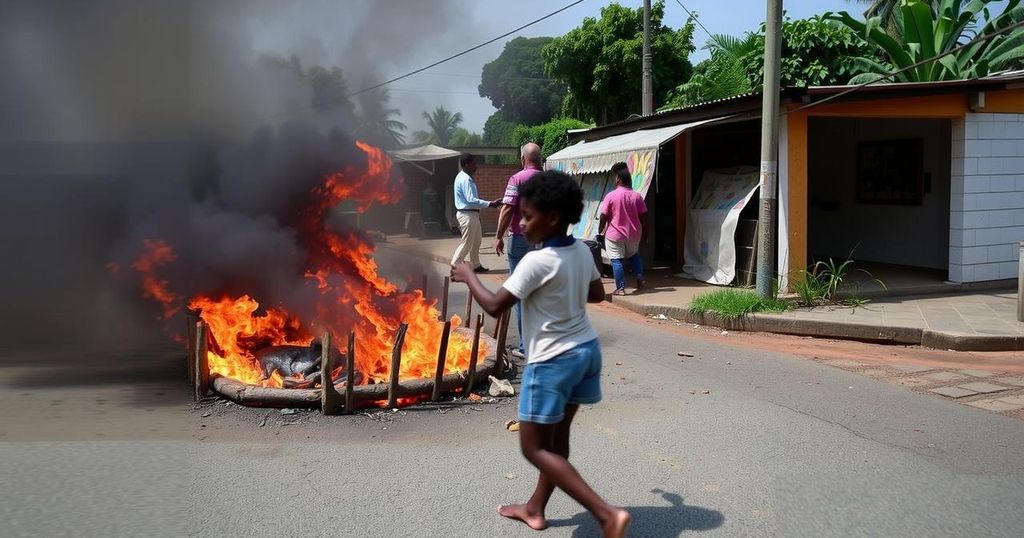Mozambique’s Post-Election Violence Claims 151 Lives Amid Ongoing Unrest
The death toll from violence following the confirmation of Daniel Chapo as Mozambique’s president has risen to 151, with recent protests resulting in at least 21 additional fatalities. The situation escalated after the Constitutional Council validated Chapo’s controversial victory, leading to widespread unrest and vandalism. This violence highlights ongoing political instability and division in Mozambique’s governance.
Following the confirmation of Daniel Chapo as the winner of the contentious October 9 presidential elections in Mozambique, violent outbreaks have resulted in the deaths of at least 21 individuals and injuries to 20 others as reported by the country’s interior minister. This surge in violence has occurred since the ruling party Frelimo’s candidate was validated by Mozambique’s top court, culminating in a grim total of 151 deaths since protests began on October 21.
Pascoal Ronda, the interior minister, noted that the violence includes 236 serious incidents reported nationwide, leading to widespread unrest primarily fueled by supporters of exiled opposition leader Venancio Mondlane. The Constitutional Council’s validation of Chapo’s victory, which modified his vote percentage from 71% to 65%, triggered public outcry and subsequent protests, with demonstrators engaging in acts of vandalism against police stations and municipal properties.
Mondlane, who remains in self-imposed exile, had previously cautioned citizens about impending turmoil, reflecting the deep divisions in the political landscape following the contested polls. The situation underscores the escalating tensions between the ruling party and opposition factions, which continue to pose significant challenges to Mozambique’s stability and democratic processes.
As Mozambique grapples with these challenges, the implications of the electoral disputes and subsequent violence raise concerns regarding the country’s governance and future electoral integrity. Law enforcement agencies are currently working to restore order amid ongoing protests, although the prospect of enduring unrest looms large over the nation.
Mozambique has a history of political contention and unrest, particularly surrounding election periods. The recent presidential elections held on October 9, where Daniel Chapo of the Frelimo party was declared the winner, have been marred by accusations of irregularities and disputes from opposition parties. The situation escalated after the Constitutional Council confirmed the election results, leading to widespread protests by supporters of opposition leaders. The backdrop of Mozambique’s political climate is characterized by significant division between the ruling party and various opposition factions, commonly resulting in violence and instability during election cycles. Plataforma Decide, an election monitoring group, has documented the ongoing violence and its toll on the local populace, highlighting the urgent need for measures to address these systemic issues and foster a climate of peace and democracy.
In summary, the recent violence following the confirmation of Daniel Chapo’s presidency underscores the fragility of Mozambique’s political landscape, marked by deep-seated tensions between opposition and ruling party supporters. The rising death toll from such unrest highlights the urgent need for stability and reconciliation efforts. Moreover, the opposition’s grievances and calls for justice illuminate the challenges Mozambique faces in achieving a peaceful and democratic society amidst escalating conflicts. The government and civil society will need to engage collaboratively to mitigate violence and restore faith in the electoral process.
Original Source: www.aa.com.tr




Post Comment